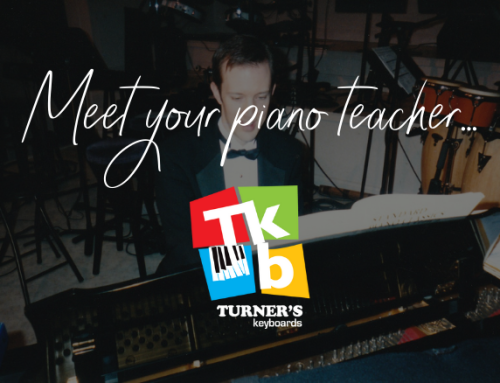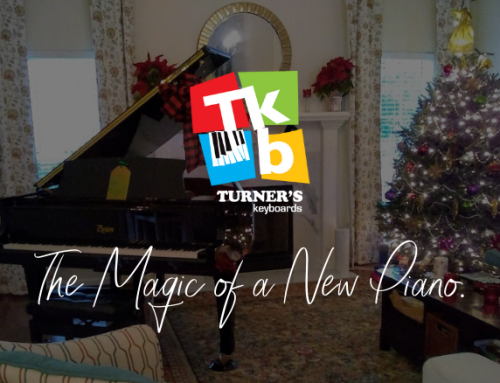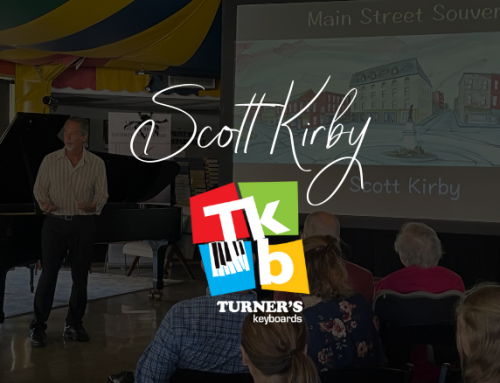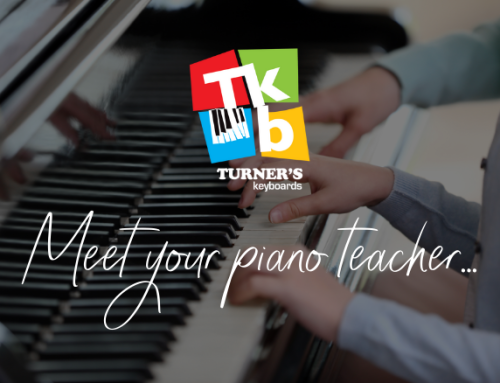 We’ve all heard the adage “youth is often wasted on the young,” but I’m willing to bet a lot of piano lessons are too. I’m also willing to bet you’ve said at least once to yourself, “I wish I could play the piano…but I’ve never had lessons.” Why not start now? I know, I know…you’re busy, you can’t read music, you’re too old to begin playing the piano, you’re afraid you’ll look silly, and so forth.
We’ve all heard the adage “youth is often wasted on the young,” but I’m willing to bet a lot of piano lessons are too. I’m also willing to bet you’ve said at least once to yourself, “I wish I could play the piano…but I’ve never had lessons.” Why not start now? I know, I know…you’re busy, you can’t read music, you’re too old to begin playing the piano, you’re afraid you’ll look silly, and so forth.
Maybe your dream involves sitting at a grand piano, playing Moonlight Sonata, or perhaps playing a rollicking tune as friends sing along is more your speed. Either way, one of the best things about “adulting” is being in charge of how you choose to spend your time, energy, and resources. One reason learning the piano as an adult can be preferable is your intrinsic motivation—it’s something you choose to do, as opposed to being dragged kicking and screaming by your parents every Tuesday after school.
Setting aside time for learning a musical instrument is no different than carving out time for the gym, salon visits, or bowling league! Plus, it’s good for your brain. Can you say that about bowling?
PLAYING THE PIANO IS GOOD FOR YOUR BRAIN

In addition to forming new neural connections, playing the piano has also been shown to boost concentration and memory, and studies have shown music to be very beneficial to patients with Alzheimers, further reinforcing the benefits to brain function. (If playing the piano can help me keep track of my keys, I’m all in!)
Musicians also tend to be more perceptive in interpreting emotions than those who have never played an instrument, suggesting that musicians have higher emotional intelligence due to the boost to their listening skills which are necessary for interpreting the music in order to perform it.
Finally, the combined facets of making music at the piano—rhythm, pitch, tempo, the notes themselves, and the tactile and kinesthetic experience of actually playing the keys engages virtually every area of your brain. Playing a musical instrument is perhaps the only activity during which almost all brain areas are simultaneously activated. Developing stronger cognitive function could help stave off dementia, and at the very least you’ll enjoy a higher quality of life as you age due to your active brain.
YOU’VE GOT THE MUSIC IN YOU

In this aspect, age…er, experience definitely beats youth! You already know how something should sound, so you’ll recognize mistakes (and victories) as you learn to play songs you love. Adults can understand the basic structures of music and how they’re inherent in some different songs they listen to and enjoy. With kids, it’s tough to take an abstract approach like that. Score one for the grownups.
ADULTS HAVE SKILLS THAT KIDS DON’T
Ostensibly, adults have developed focus and discipline that kids generally don’t yet possess. You’ll be able to willingly make time to practice, because as an adult, you understand that to become better at the piano, you must spend time practicing it. Whether you’ve played sports, participated in drama, created art, or learned to French braid hair, the common element is practice. Adults have the life experience to know it’s necessary, while children don’t know without being taught how to actually get better at something. Score another for the grownups.
PLAYING A MUSICAL INSTRUMENT RELIEVES STRESS (SOMETHING KIDS DON’T NEED)

There are some mood benefits of music that can help you learn how to play an instrument, too, which come in handy as an adult. (Studies prove this!) Having a positive mood is very good for your cognitive function, for your general well-being, and for being able to sleep, which we know enhances brain function. (Improved cognitive function…sound familiar?)
PLAYING THE PIANO MAKES YOU AWESOME
It has been proven that adults (and children) who take part in musical activities are happier and more sociable than those who don’t. Plus, instead of saying “I wish I could,” you’ll be able to say “I can play that!”, which is awesome. Score one for music…and for you.
*Featured Black and White Image Above Courtesy: https://musicoomph.com/*







I thought it was really cool to learn that music releases dopamine and helps you cope with stress. I’ve actually been debating on whether or not I ought to try and learn to play the piano. I think it would be a lot of fun, I just worry as to whether or not I’ll have the time to do it. I guess it would always be worth a shot to try, especially seeing as how I need a good stress-coping mechanism.
Thank you for this encouraging information! Everyone should learn a musical instrument, even if it’s something basic and simple. It’s fun, a great way to express yourself, and it does keep your brain active and healthy. Excellent post, thank you for sharing!
Great read. I also think that piano learning is good at every age and whether you are young or adult you should learn this instrument as there are many benefits of this instrument just like you shared some.
It’s great how playing the piano can release dopamine and reduce stress levels. I have been in a mental rut lately, and my friend suggested to me this past weekend that I pick up a new hobby or skill. Playing the piano seems like a good way to take my mind off of things as I cultivate a useful skill.